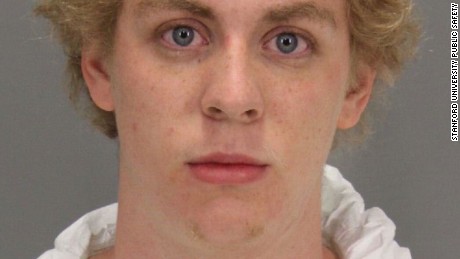When adults don’t participate in rape prevention alongside children and teens we lose an important opportunity. I’m the violence prevention educator they’ll never see again.
This school year began with news of former prep school athlete Owen Labrie’s conviction of a felony sex crime. As high school students prepare for graduation, the news cycle is again saturated with stories of another star athlete convicted of sexual assault.
The sentences these two men received were painfully minimal—people with less privilege and less money to hire lawyers have gotten much worse. Yet the reality of criminal consequences for acts of sexual violence was, for many, a wake-up call.
I’ve been teaching safety and sexual violence prevention skills in schools for almost 15 years. But this year, I saw a new urgency.
One school made it mandatory for all graduating seniors—boys and girls—to take a class where they learned how to safely intervene if they are at a party and see someone trying to take an intoxicated person to his room. Another school excused a group of girls from two full days of classes so they could learn to verbally and physically protect themselves from rape perpetrated by someone they know. Many others made it possible for us to teach students with intellectual disabilities to understand and interrupt sexual abuse.
The teenagers I taught this year took sexual violence seriously. I didn’t get any of the usual declarations of “I live in a safe neighborhood so I don’t need to learn about violence.” Their questions were more thoughtful too: If a girl doesn’t say no, how can I tell if she doesn’t want sex? What do I say when people in my class make jokes about rape?
It feels like progress. And it is. But something important is missing.
This year, the abuse prevention program I direct has taught safety and rape prevention programs to 61 groups of teenagers in 33 schools and youth programs. In this same year we’ve only worked with teachers and administrators in two. One was a special education department in a public school. The other, an educational collaborative of schools for students with disabilities, was the only school system that made a commitment to changing their policies and practices to prevent sexual abuse. In my more than 20 years of sexual assault and domestic violence advocacy work, this is the first time I’ve seen a school system make this level of commitment without being forced to do so by negative publicity.
The students who are required by adults in their lives to learn sexual assault prevention skills are wealthy, poor, and everywhere in between. Some have disabilities. Some are LGBTQ. Yet in almost all cases the adults in their lives are not participating in sexual violence prevention programs of their own. This year I’ve taught a few hundred teenagers how to challenge a friend who is coercing his girlfriend to have sex. I wish I was teaching just as many parents and teachers to initiate similar conversations with other adults who are at risk to sexually abuse.
As busy as we are this year, there is one class we haven’t taught at all. It’s for parents, and it gives them tools to teach their children to speak up when someone touches them in a way they don’t like and to make sure they have permission before touching anyone else. In this class, parents get the opportunity to practice initiating conversations with adults who make sexualized comments about children’s bodies, give them gifts as bribes, or encourage them to keep secrets—all behaviors that are common among sexual abusers.
My colleagues who work at rape crisis and domestic violence programs are having similar experiences. One held a program about campus rape for college-bound teens and their parents that was attended almost exclusively by teens. Several others work with school systems where they get only an hour to educate students about rape.
Adults are no doubt working tirelessly behind the scenes to make rape prevention programs happen—they’re securing funding, coordinating carpools, and navigating bureaucracy. The love and concern they have for the teens in their lives is moving, and I’m indebted to them for their work to make rape prevention education possible.
Still, their absence in the learning process is palpable. I wish the adults who feel a sense of urgency about girls learning to protect themselves and boys knowing the meaning of consent felt just as much urgency about increasing their own knowledge and skills. I work with a lot of teachers who have created thorough and well-designed sexual violence curricula. But at least as many give me blank stares when I ask them if they know their school’s policies on sexual abuse.
When adults don’t participate in rape prevention alongside children and teens we lose an important opportunity. I’m the violence prevention educator they’ll never see again. The skills I teach and the messages I give will have much more impact if they are reinforced by adults the students love and respect.
Owen Labrie and Brock Turner are both wholly responsible for their actions. At the same time, they both have families and school communities that shaped their values. If we want real change, that’s where the self-reflection has to start.
Meg Stone is the Director of IMPACT Boston, an abuse prevention and safety training program that is part of the nonprofit Triangle. Her writing has been published in Washington Post, Ms., Cognoscenti, Hippocampus, and is forthcoming in STIR Journal.
Other Links:

